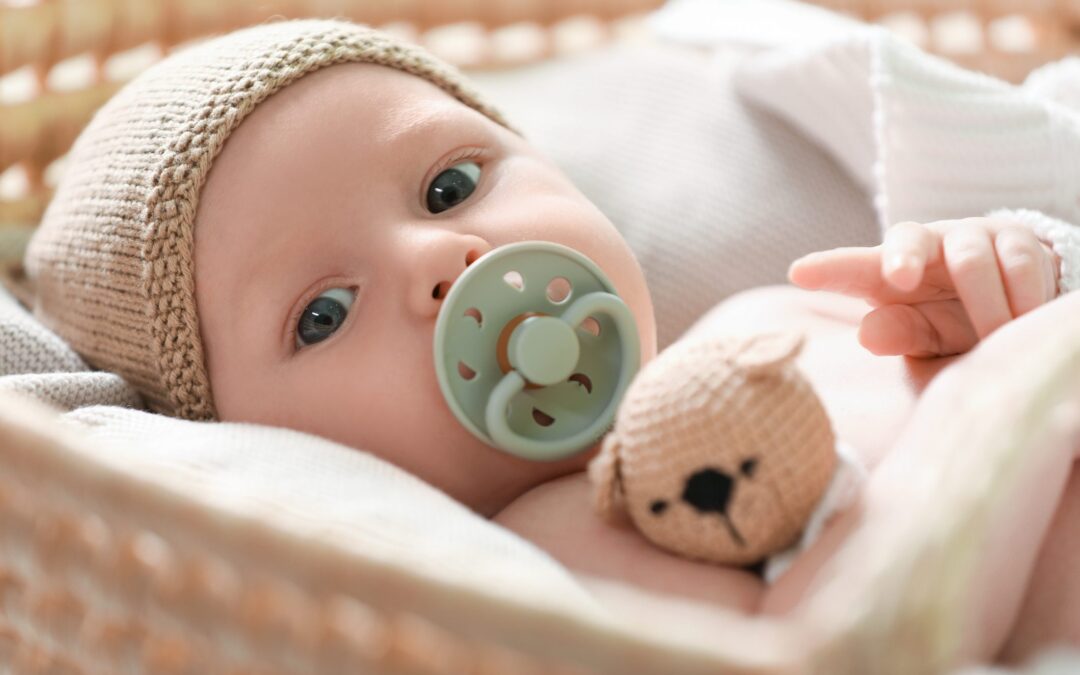Pacifiers have been a staple in many households for soothing infants for decades. However, debates surrounding their use persist, particularly concerning their impact on oral development.
While pacifiers can offer comfort to babies and caregivers alike, it’s essential to weigh the potential benefits against the risks they pose to oral health.
In this article, we delve into the pros and cons of pacifier use and their influence on oral development.
Pros of Pacifier Use:
Soothing Effect:
Pacifiers provide babies with a natural instinct to suckle, offering comfort and calming effects, especially during periods of distress or when trying to fall asleep. This soothing sensation can help babies self-regulate their emotions and reduce crying episodes, benefiting both infants and caregivers.
Reduced Sudden Infant Death Syndrome (SIDS) Risk:
Studies have suggested that pacifier use during sleep may lower the risk of SIDS. While the exact mechanism is unclear, it’s hypothesized that the presence of a pacifier may help maintain an open airway or prevent infants from falling into a deep sleep, reducing the likelihood of SIDS.
Weaning Aid:
Pacifiers can serve as a transitional object during the weaning process, helping babies gradually transition from breastfeeding or bottle-feeding to independent sleep patterns. They can also assist in breaking the habit of thumb-sucking, which can be more challenging to discourage.
Cons of Pacifier Use:
Dental Issues:
Prolonged or improper pacifier use can lead to various dental problems, including misalignment of teeth, changes in the roof of the mouth (palate), and alterations in jaw development. Continuous sucking on a pacifier can exert pressure on the developing teeth and palate, potentially causing malocclusion or other orthodontic issues.
Increased Risk of Ear Infections:
Some studies have suggested a correlation between pacifier use and an increased incidence of ear infections in infants. This association may be attributed to the obstruction of the Eustachian tube, which regulates pressure in the middle ear. Prolonged sucking on a pacifier can disrupt this balance, leading to fluid accumulation and subsequent infections.
Dependency and Sleep Disruptions:
Overreliance on pacifiers for soothing can create a dependency that may interfere with self-soothing skills and disrupt sleep patterns. Babies who rely heavily on pacifiers to fall asleep may struggle to self-settle when the pacifier falls out during the night, leading to frequent awakenings and sleep disturbances for both the infant and caregivers.
The use of pacifiers remains a contentious topic in child-rearing, with both advantages and drawbacks to consider. While pacifiers can provide immediate comfort and potentially reduce the risk of SIDS, their prolonged use may contribute to dental issues, ear infections, and sleep disruptions.
Parents and caregivers should be mindful of the appropriate use of pacifiers, limiting their use to specific contexts and promoting healthy oral habits in infants. Consulting with the best Windermere dentist can provide valuable guidance on pacifier use and its implications for oral development, ensuring the well-being of infants as they grow and develop.
